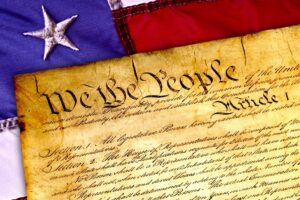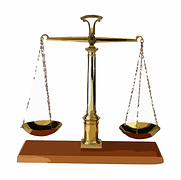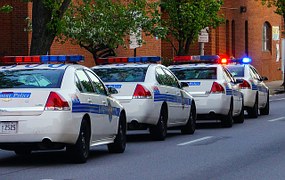The “Insurrection Act”: Can the President Order the Army into Maryland?
The overwhelming outcry against and justifiably furious reaction to the killing of unarmed George Floyd while in the custody of the Minneapolis Police Department* have led to- as yet inchoate- machinations about using the military forces of the United States of America as a police force in states and cities across the land. As Attorney Eric T. Kirk will tell you.

Proponents and commentators have suggested that the “Insurrection” 1 Act [ 10 USC 251 et seq] may or does provide such authority. Does it? Certainly, labels can be misleading and detrimental, but in dealing with the application of the law a clear understanding or the definitions, meanings and usage of terms is of vital importance. “Insurrection” is not directly defined in what is called the “Insurrection Act”. A commonly understood meaning of the term is
“an organized attempt by a group of people to defeat their government and take control of their county, usually by violence”2
Legitimate activity that has recently occupied our citizens, the right of protest, is commonly understood as
“a strong complaint expressing disagreement, disapproval, or opposition” 3
An unfortunate, and manifestly illegitimate activity that has recently occupied our attention, looting, is commonly understood to mean
“the activity of stealing from stores during a violent event” 4
It seems relatively clear that, in common parlance at least, insurrection, is a far more consequential and insidious undertaking than protest, yet also different from looting.
The “Insurrection Act” indeed allows for federal aid to state governments, and provides that:
“Whenever there is an insurrection in any State against its government, the President may,
- upon the request of its legislature, or,
- of its governor if the legislature cannot be convened

call into Federal service such of the militia of the other States, in the number requested by that State, and use such of the armed forces, as he considers necessary to suppress the insurrection”
In Section 252, The Act gives the President the authority to employ the military without the request of a state in enumerated circumstances, and provides that:
“Whenever the President considers that
- unlawful obstructions, combinations, or assemblages, or
- rebellion against the authority of the United States,
make it impracticable to enforce the laws of the United States in any State by the ordinary course of judicial proceedings, he may call into Federal service such of the militia of any State, and use such of the armed forces, as he considers necessary to enforce those laws or to suppress the rebellion.”
Finally, the Act provides the
The President, by using the militia or the armed forces, or both, or by any other means, shall take such measures as he considers necessary to suppress
- any insurrection
- domestic violence
- unlawful combination, or conspiracy
if it
(1) so hinders the execution of the laws of that State, and of the United States within the State, that any part or class of its people is deprived of a right, privilege, immunity, or protection named in the Constitution and secured by law, and the constituted authorities of that State are unable, fail, or refuse to protect that right, privilege, or immunity, or to give that protection; or
(2) opposes or obstructs the execution of the laws of the United States or impedes the course of justice under those laws.
In any situation covered by clause (1), the State shall be considered to have denied the equal protection of the laws secured by the Constitution.
Source: 10 USC 251 et seq.
Prior to invocation of any of these powers , the President is required to issue a proclamation to disperse and “order the insurgents to disperse and retire peaceably to their abodes within a limited time.”
The President may, it seems clear, use that armed forces of the United States of America quell insurrection upon the request of a State. The President does not need a state’s request to act under the second and third clauses of the Act. Under 10 USC section 252, the President may use the military to enforce federal law where there is a rebellion, or an “unlawful” obstruction or assemblage.

The third grant of Presidential power, 10 USC section 253, with perhaps the broadest language of the clauses, allows the president to utilize the military to suppress any “domestic violence” that causes interference with State and Federal law, or leads to a deprivation of constitutional rights of the citizens. Unfortunately, what may constitute sufficient “domestic violence” is open for interpretation, as it is undefined in the act. There is, moreover, no requirement that the domestic violence authorizing the use of the military be considered separately “unlawful”.
FN1 It’s interesting to note that the prior title of the act appears to have been “ENFORCEMENT OF THE LAWS TO RESTORE PUBLIC ORDER”. The Chapter heading was changed to “INSURRECTION” in 2008. Restoring public order and insurrection are surely different things.
FN 2 https://dictionary.cambridge.org/us/dictionary/english/insurrection
FN3 https://dictionary.cambridge.org/us/dictionary/english/protest
FN 4 https://dictionary.cambridge.org/us/dictionary/english/looting
* All four involved officers have now been charged and will be prosecuted in the case.



